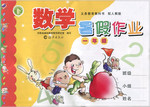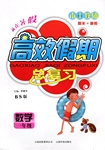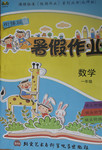3.A simple gesture can be formed into a child's memory so quickly that it will cause the child to give a false answer to a question accompanied by that gesture.A new finding suggests that parents,social workers,psychologists and lawyers should be careful with their hands as well as their words.
While memories of both adults and children are easy to react to suggestion,those of children are known to be particularly influenced,said lead researcher Sara Broaders of Northwestern University.Kids are used to looking to adults to tell events for them and can be misled even if not intentionally.
Previous research,for example,has shown that detail-loaded questions often cause false answers; when asked,say"Did you drink juice at the picnic?"the child is likely to say"yes"even if no juice had been available.It is not that the child is consciously lying,but rather the detail is quickly formed into his or her memory.
To avoid this problem,social workers have long been advised to ask children only open-ended questions,such as"What did you have at the picnic?"But an open-ended question paired with a gesture,briefly meaning a juice box,is treated like a detailed question.That is,children become likely to answer falsely.
And it isn't just a few kids:77% of children gave at least one piece of false information when a detail was suggested by an ordinary gesture.Gestures may also become more popular when talking with non-fluent language users,such as little kids,Broaders said as hand movements can impart meaning of unfamiliar words and phrases."It certainly seems reasonable that adults would gesture more with children."
In general,Broaders advises parents and other adults to"try to be aware of your hands when questioning a child about an event.Otherwise,you might be getting answers that don't reflect what actually happened."
32.According to the text,gesturesC.
A.have not any function at all
B.are rarely used by people
C.have certain effect on children
D.are often used by social workers
33.Why are kids easy to be misled by gestures according to Sara Broaders?B
A.These gestures are very attractive.
B.Their memories are affected easily.
C.Children are easy to tell lies.
D.these gestures are used frequently.
34.According to the text,which of the following questions may cause a wrong reply?B
A.What will you have for lunch?
B.Did you cheat in the last English examination?
C.Where are you going Lucy?
D.Did you see anything else last night?
35.The underlined word"impart"in Paragraph 6meansD.
A.separate
B.tell apart
C.confuse
D.pass on.
分析 本文是一篇科教类阅读,属于说明文,一个简单的手势可以形成孩子的记忆如此之快,它将导致孩子给人们一个错误的回答一个问题伴随着手势,一项新发现表明,父母、社会工作者、心理学家和律师应该小心用手势.本文以此展开,主要讲述了手势的影响.
解答 32.答案:C.推理判断题.根据A simple gesture can be formed into a child's memory so quickly that it will cause the child to give a false answer to a question accompanied by that gesture.可知,手势对孩子有一定的影响.故选C.
33.答案:B.细节理解题.根据While memories of both adults and children are easy to react to suggestion,those of children are known to be particularly influenced可知,孩子们的记忆很容易被影响.故选B.
34.答案:B.推理判断题.根据"Did you drink juice at the picnic?"the child is likely to say"yes"even if no juice had been available.It is not that the child is consciously lying,but rather the detail is quickly formed into his or her memory.可知,与该问句"你野餐时和果汁了么"相似的为B选项.故选B.
35.答案:D.词义猜测题.根据Broaders said as hand movements can impart meaning of unfamiliar words and phrases可知,更广泛的说,手的动作可以传授不熟悉的词汇和短语的意义.故impart意为传递.故选D.
点评 本文是一篇科教类阅读,题目涉及多道细节理解题,推理判断题.做题时学生应仔细阅读原文,把握文章主要内容,联系文章上下文内容并结合所给选项含义,从中选出正确答案,一定要做到有理有据,切忌胡乱猜测.



 暑假作业海燕出版社系列答案
暑假作业海燕出版社系列答案 本土教辅赢在暑假高效假期总复习云南科技出版社系列答案
本土教辅赢在暑假高效假期总复习云南科技出版社系列答案 暑假作业北京艺术与科学电子出版社系列答案
暑假作业北京艺术与科学电子出版社系列答案